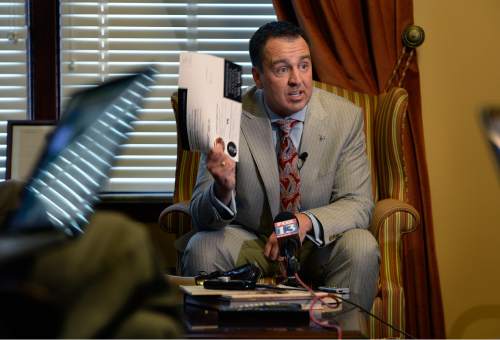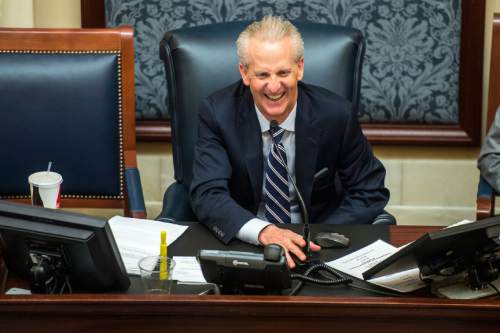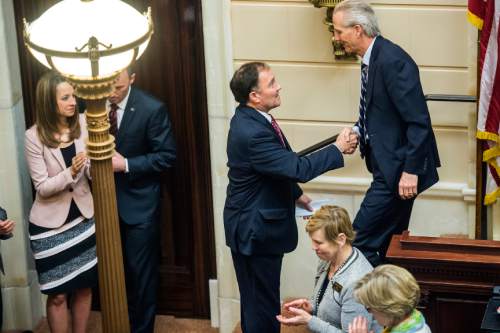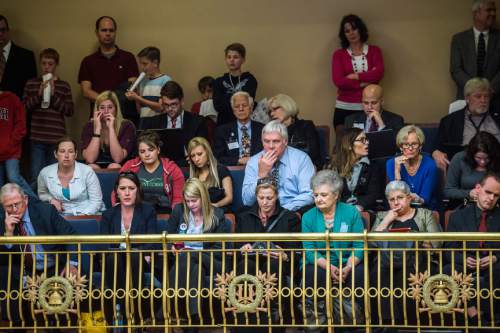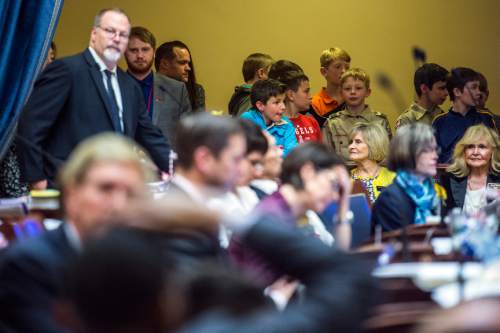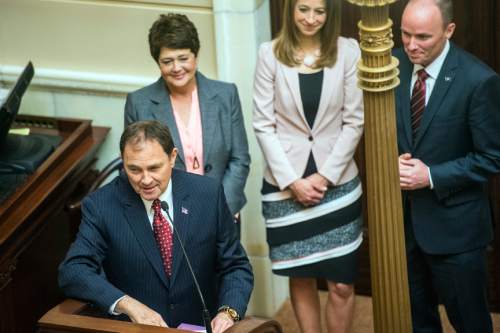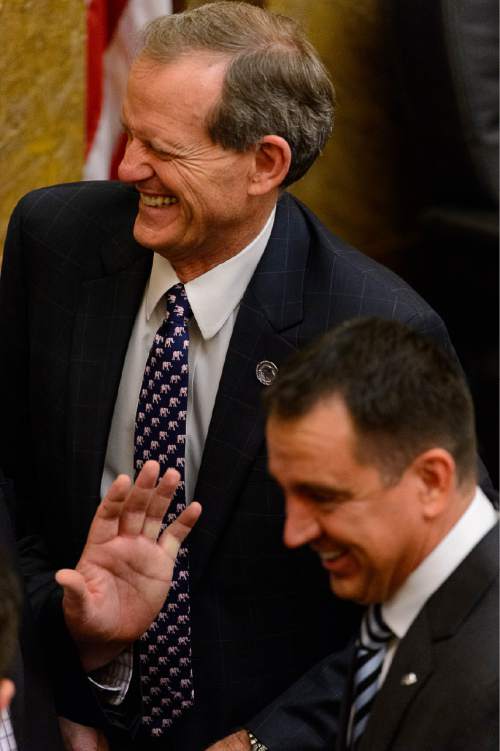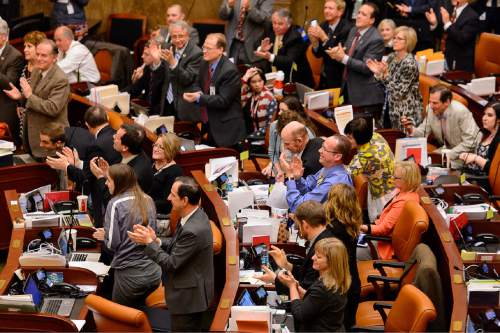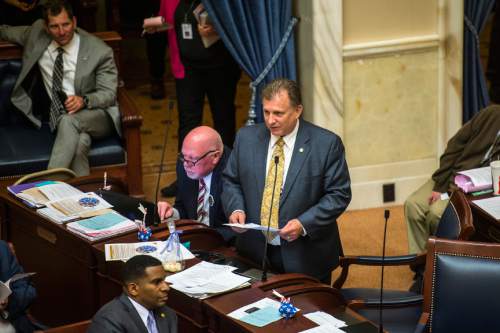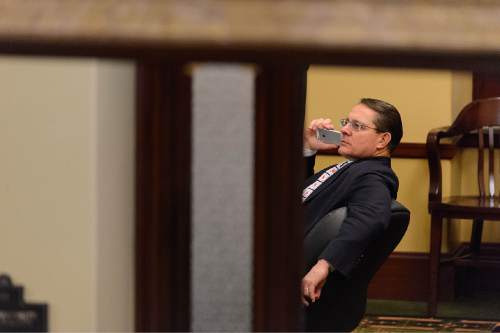This is an archived article that was published on sltrib.com in 2015, and information in the article may be outdated. It is provided only for personal research purposes and may not be reprinted.
Few things can motivate like a deadline. Nearly one of every four bills approved by the Legislature this year passed on the session's final day — 119 out of 528.
Two of every five bills went through on the final two days: 222 of 528.
And more than half cleared in the final week (or four days) of the 45-day gathering: 277 of 528.
The reasons so may measures fly through so late, officials say, include human nature to procrastinate; introduction of a record number of bills this year, and filing them late, which led to a drafting backlog; work on some tough bills that demanded final moment maneuvering; and scheduling practices that delayed action on many items.
The flurry raises questions about whether the final-days deluge allows for adequate consideration, although legislative leaders insist it does. They point to some changes this year to help ensure thorough scrutiny.
Adam Brown, a political science professor at Brigham Young University, studies bill-passage rates and said that, in recent years, "the general trend is that not only do legislators introduce more bills — 831 this year, that's a lot of bills — we are seeing more bills come in later."
In fact, the 831 bills introduced and the 528 that passed appear to be all-time records. Legislative staffers say it is a record back to at least 2000.
That volume puts a strain on staffers to write all those measures, Brown said. Complicating matters, legislative staffers told him, is that lawmakers in recent years have been submitting bills later and later in the session.
A few years ago, he said, when the session was moved back a week to avoid Martin Luther King Day, staffers said lawmakers also started delaying submitting bills for writing. Brown said they used to try to submit them before Christmas, but appeared to begin thinking they would have plenty of time to do it afterward.
For example, Brown's research found that in 2008, 77 percent of bills were introduced in the first two weeks of the session — compared to 56 percent this year.
Leaders recently have scheduled fewer hearings on measures during the first two weeks of the session, opting to focus instead on the budget. "That may be good for the budget," Brown said, "but it certainly didn't help this trend of bills being considered later in the session."
Senate President Wayne Niederhauser, R-Sandy, said legislators meet on the floor for two hours a day during the first few weeks, when most work is done in committees. They meet all day and night on the floor the last few days, so more bills naturally pass then.
"It's human nature that when you get closer to the deadline, everyone starts waking up," new House Speaker Greg Hughes said. "Everyone starts working harder."
The Draper Republican explained that some tough bills require all the available time. "Certainly the anti-discrimination, religious-liberties bill needed every second of every day" for negotiations after The Church of Jesus Christ of Latter-day Saints called for such a measure on the second day of the session.
Another major bill, approving a gasoline-tax hike, passed in the session's last half-hour — as did a measure banning "powdered alcohol," a day after that product received federal approval.
Swift action in the waning hours stirs up questions about whether legislation is fully vetted.
As legislators present bills every year, Brown said, "so often they say this is a small cleanup bill. They'll start saying that 'last year we passed this bill, and it was a pretty good bill except it had this language with implications we didn't foresee so now we have to pass this bill to clean it up.' "
It happens so often "it does make you wonder" if bills have had enough scrutiny, Brown said. "It's enough to at least raise eyebrows."
Hughes said he believes bills are carefully considered. He added that the Legislature tweaked procedures a bit to help ensure that this year.
The Legislature, for example, has a rule that bills are supposed to have hearings in both bodies. But previously in the final week, it waived that rule. It did not do that until the final day this year.
Hughes and Niederhauser argue that helped ensure the vast majority of bills had two hearings, had two votes by the full Senate (as required by its rules) and a vote by the full House.
"We're improving," Hughes said. "Everyone likes doing that until it's their bill dying on the vine."
With the changes, Niederhauser said, "every bill has been scrutinized pretty well in committee.
The thing you have to watch out for is substitutes," when bills may be entirely substituted with new language introduced at the last minute on the floor. "That is where there is some risk, if there is a lot of substantive change" and that sometimes happens with last-minute compromises.


